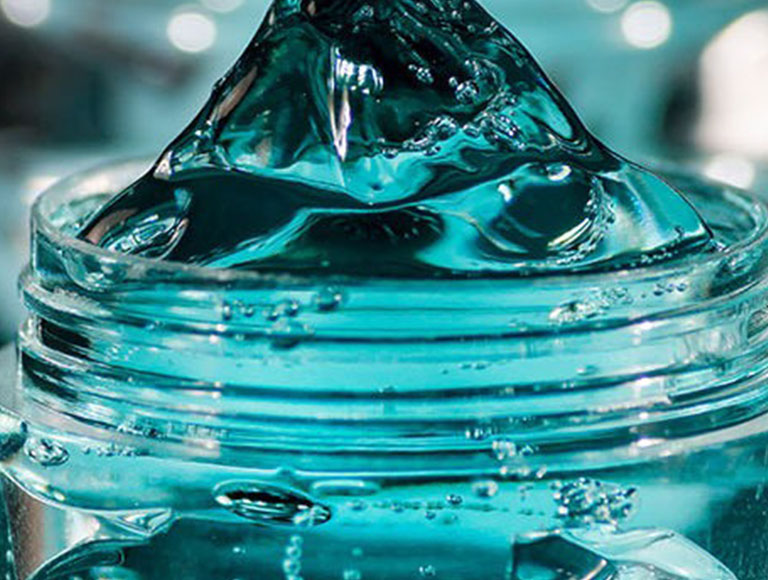|
Getting your Trinity Audio player ready...
|

Rheology is the study of the deformation and flow (flow) of materials. Rheometry, on the other hand, would measure the rheological properties of materials. It is a branch of Physics study, related to materials and industries as diverse as food, civil construction, petrochemicals, oil well drilling engineering, plastics, paints, pharmaceuticals, and cosmetics, to name a few.
The rheological characterization of emulsions, suspensions, and emulsion-suspensions (a sunscreen, for example) is essential to evaluate shelf-life (stability), spreadability (ease of applying a lotion), whether the 'A' shaving foam formulation will have better acceptance and efficiency than the 'B' formulation, etc. Moisturizing lotions, shaving gel or foam, lip balm, sunscreens, are some of the examples of cosmetic products that are all materials that rheologists classify as “non-Newtonian”: those whose viscosity depends not only on temperature, but also on tensions (forces) applied to the sample, and also the time of application of these tensions to the sample.
All combined, cosmetic products are considered “rheologically complex” materials. If a rotary viscometer is much better than a simple flow cup, and relatively cheap, it cannot be compared to the information that a rotational oscillatory rheometer can provide, whether in the characterization of a sample or in the development of a new formulation. Furthermore, the rheology of a sample in aqueous emulsion, or aqueous suspension, is strongly dependent on particle size, zeta potential, ionic strength, pH, etc. A simple change in the concentrations of additives, or the nature of such additives, radically changes the entire behavior. When formulating cosmetics, knowing what its effect will be when applied to the skin, its texture (sensory, touch, softness, ease of spreading, whether sticky or not, etc.) and the prevention of emulsion stability problems are an integral part. of the cosmetics development and manufacturing process.
Despite the traditional trial and error approach, more and more industries are demanding more rational procedures, to save time and money, to achieve functional and sensorial objectives in the formulation of cosmetics. For example, in recent work, Tafuro et al (Ind. Eng. Chem. Res. 2019, 58: 23549−23558), evaluating aqueous dispersions for cosmetic use based on acrylic polymers (from three different classes: carbomers, acryloyl-dimethyl-taurate derivatives and pre-dispersed acrylic polymers), developed a methodology, based on rheology and texture analysis, to discriminate each cosmetic raw material based on its application specificities and rationalize its use in personal care products, obtaining a wide range of characteristics relating to texture. The authors concluded, from statistical analyses, a significant correlation between rheological and texture parameters: viscosity (η) correlates with firmness, while storage modulus (G') and loss modulus (G”) with adhesiveness and stiffness, respectively.
The UNIFEI Rheology laboratory, on the Itajubá campus, under the coordination of Prof. Dr. Antonio Bombard, is equipped with a modern MCR-301 rheometer (voltage and rate controlled, Anton Paar Physica GmbH, Germany), which allows oscillatory tests of amplitude and frequency, temperature cycles, flow and viscosity curves with rate sweep , yield stress, among other possible tests. It also has a particle size distribution analyzer by acoustic attenuation and zeta potential by electroacoustic, DT-1202 (Dispersion Tech Inc., USA), which makes it possible to analyze even opaque samples, without dilution.
The prof. Antonio Bombard has a degree in Chemistry, a master's degree and a doctorate from IQ at UNICAMP. He has worked with rheometry since 1998 and has published more than 30 scientific articles related to rheology and rheometry. He has supervised master's dissertations and doctoral theses and is currently the coordinator of the Materials for Engineering postgraduate course at UNIFEI.
Contact: antonio.bombard@gmail.com Cell phone / What'sApp: (35) 988 611 974
